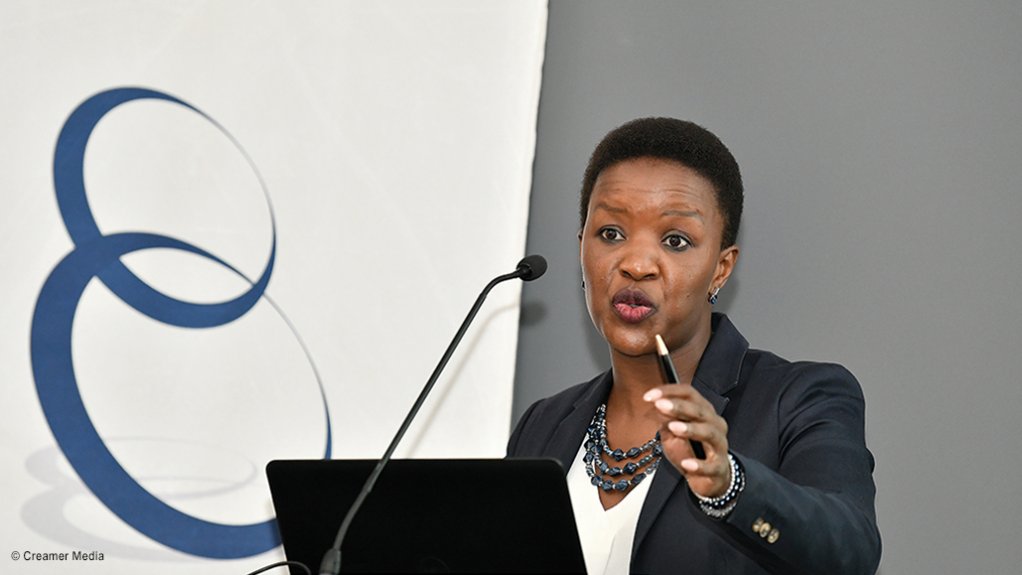Of all the factors impacting on investor confidence in the country, Business Leadership South Africa (BLSA) CEO Busi Mavuso says government’s communication to the market is one that requires extensive work.
She cites in her latest weekly newsletter the example of the debacle around the exemption given, and then withdrawn, to State-owned power utility Eskom to allow it to not report fruitless and wasteful expenditure in its yearly financial statements.
The way the exemption was communicated to the market created the impression that it was to enable Eskom to withhold information from ratings agencies, Mavuso states, adding that this was a serious blunder.
She adds that it damages government’s reputation as an honest counterpart to investors, particularly leading up to the Investment Conference on April 13.
One of the most important investment cases the country should be making is in the transition of the energy sector – a case which had not been helped by Electricity Minister Kgosientsho Ramokgopa, Mavuso points out.
The Minister recently visited Eskom’s 15 power stations and reported thereafter that the stations need life extensions through greater government investment, as well as more investment in coal mines.
Mavuso explains that, while Ramokgopa may not have intended to imply a swing in his focus on renewables to coal-based generation, his comments were at risk of being interpreted like that.
“Investors who are planning to pour billions of dollars into the project of transitioning the economy would have been alarmed,” she adds.
Additionally, Mavuso notes that South African companies are contending with the fact that they will find it increasingly difficult and expensive to export their goods because of the high carbon profile of the energy required to manufacture those goods.
For example, the European Union is moving towards a carbon tariff system that will penalise imports from countries with a high carbon intensity of production. Sticking to the transition plans is, therefore, important for domestic companies to be able to invest and be confident that the power they consume in future will enhance their international competitiveness.
Moreover, Mavuso says government should have commented on the 1.2 GW of new electricity production having been registered in March, bringing the total for the quarter to 2.4 GW, which is half the nameplate capacity of Eskom’s Medupi power station once it becomes operational.
“That is quite some achievement, yet there was no press release and no comment on it from the Minister. If ever there was an opportunity to credibly tell the story of South Africa’s progress toward resolving loadshedding, this was it.”
She adds that government should talk not of exempting Eskom from disclosure requirements, but of its progress in restructuring the entity to unbundle an independent grid operator.
“We should [also] talk of the rapid build rate of renewable energy plants, much of it led by the private sector, and diversifying our energy production base, not digging up more coal,” Mavuso emphasises.
Mavuso concludes that the investment case requires constant care to position the “brand” of South Africa as an excellent opportunity for investors, one that offers decent returns and manageable risks.
She hopes that government will talk about improving the environment for global investors during the Investment Conference, and signal to the world its commitment to the energy transition.
EMAIL THIS ARTICLE SAVE THIS ARTICLE ARTICLE ENQUIRY
To subscribe email subscriptions@creamermedia.co.za or click here
To advertise email advertising@creamermedia.co.za or click here











